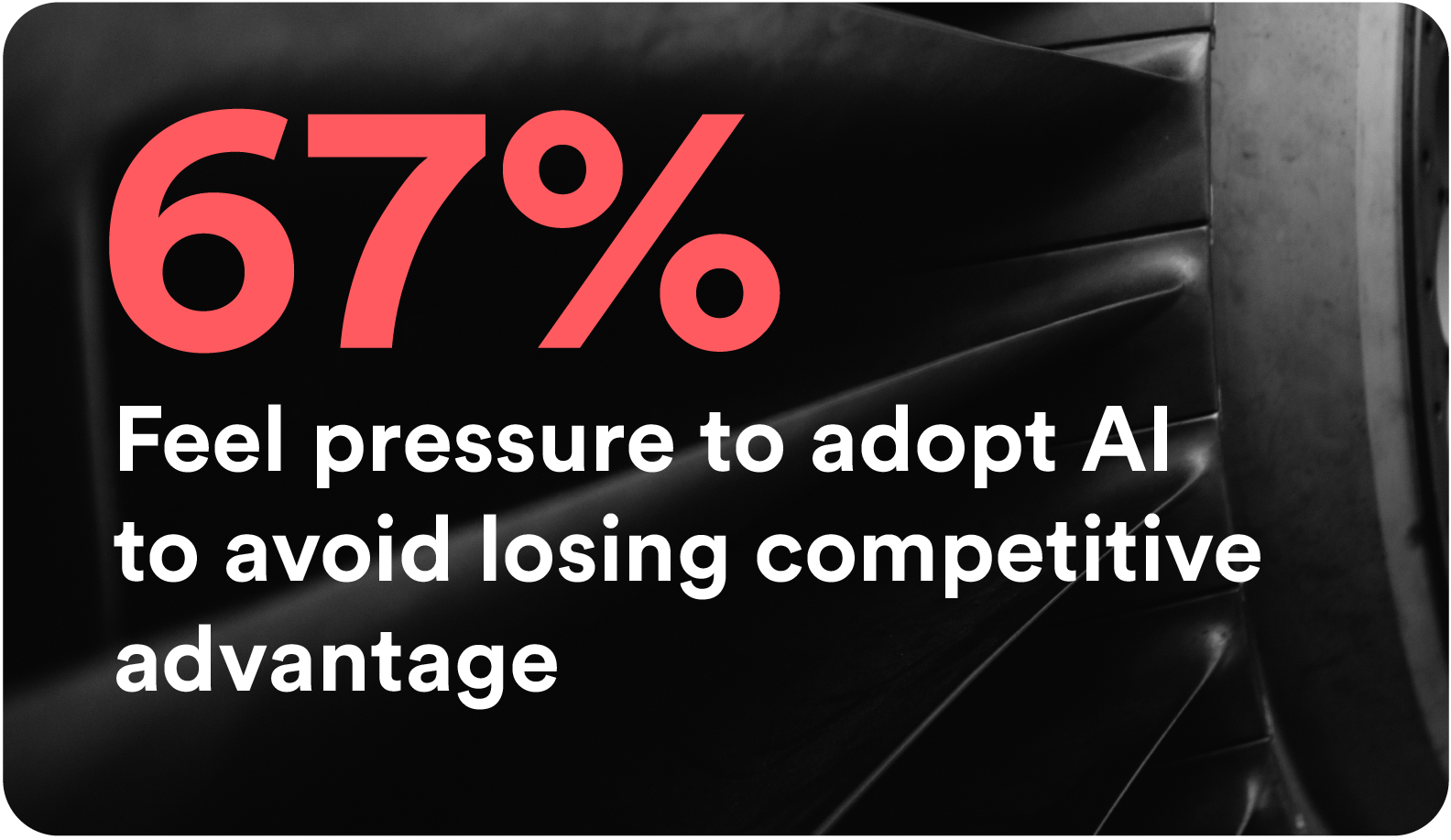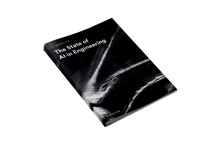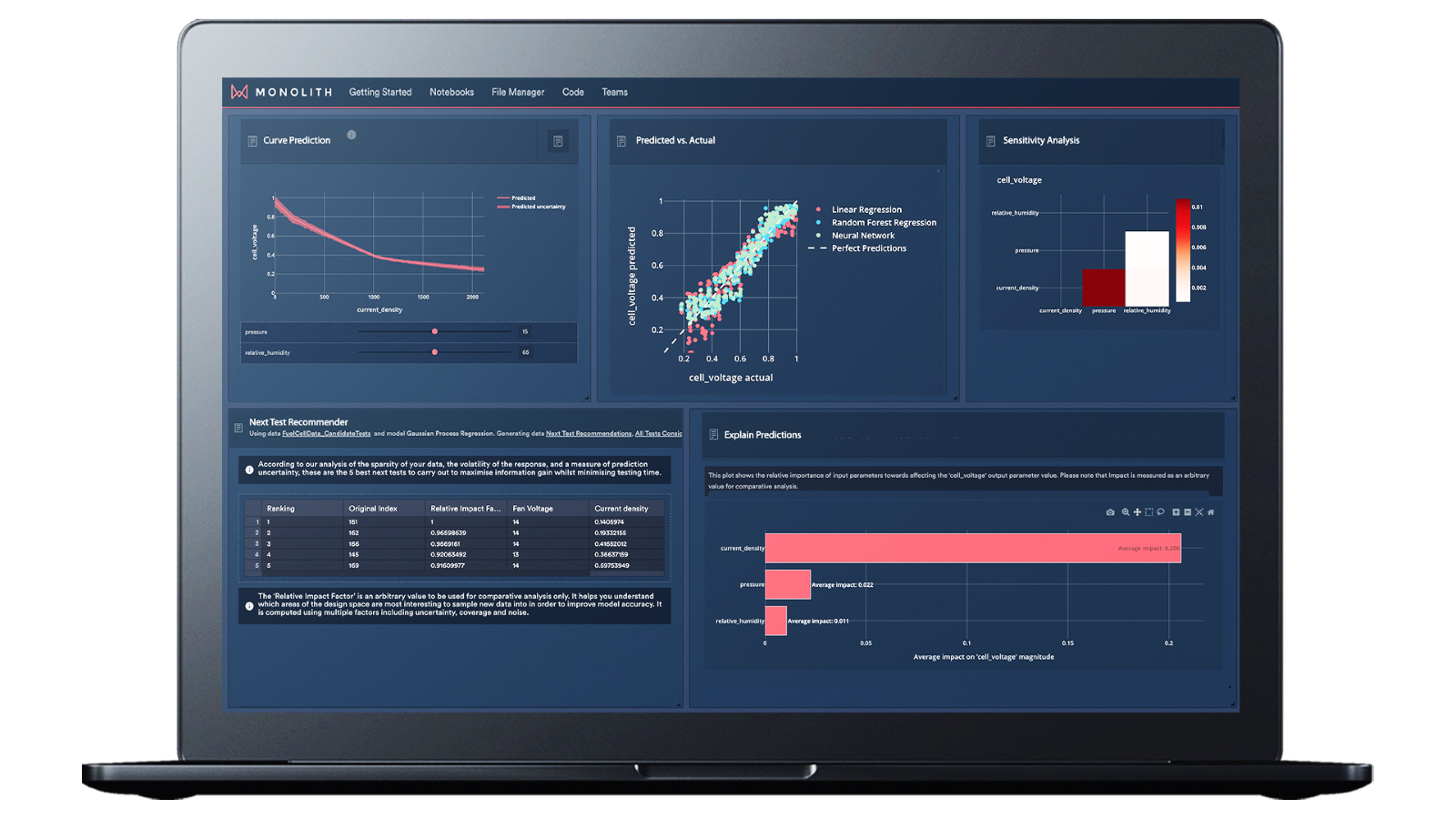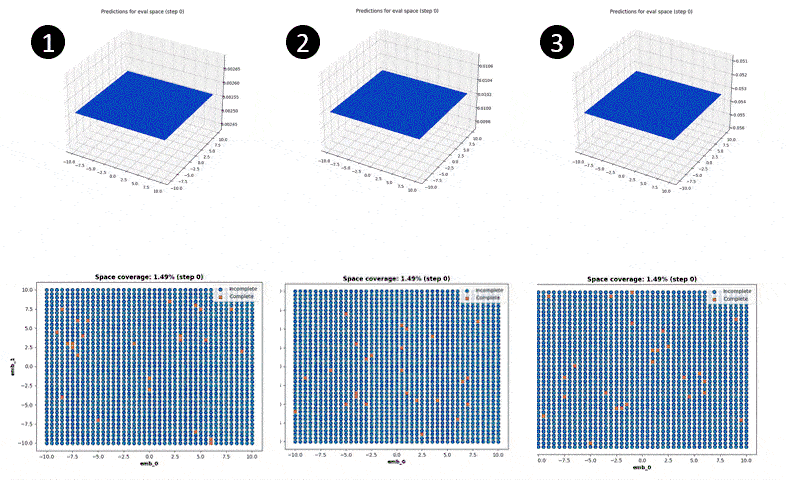Battery Testing Woes to Wow's: Introduction
In the ever-evolving world of automotive engineering, shifting to electric powertrains has brought about new challenges.
In order to tackle these complex challenges and remain competitive, engineering teams need to come up with creative solutions to accelerate product development without compromising on efficiency.
Monolith is at the forefront of this revolution, helping automotive OEMs overcome battery testing problems and improve overall product development.
The Next Test Recommender by Monolith provides engineers with real-time recommendations for the exact best test conditions to choose for their next batch of tests. The feature ranks the most impactful new tests to carry out, based on an analysis of previously collected data.
Addressing OEM Challenges Using Artificial Intelligence
The promise of AI is to enhance product development efficiency and expedite time to market.
According to a 2023 State of AI in Engineering study commissioned by Monolith and conducted by Forrester Consulting, 70% of US and European automotive engineering leaders recognize the need to accelerate the ideation and launch of complex products, like battery electric vehicles, to maintain a competitive edge.
One way AI is transforming automotive engineering is through self-learning models. By utilizing historical and current engineering test data, visionary engineering leaders are significantly reducing testing time and simulations for complex products, leading to increased competitiveness and faster time to market.
Battery testing serves as a prime example of this transformation.
Monolith's Solution to Battery Testing Problems
Monolith recently unveiled its groundbreaking product update, the Next Test Recommender (NTR).
This innovative feature provides active recommendations for validation tests during the development of challenging products such as batteries and fuel cells.
The integration of robust active learning algorithms in our Next Test Recommender (NTR) signifies a significant advancement in product development for safety-critical applications such as battery systems.
In a real-world fuel cell use case, an engineer tasked with configuring an optimal cooling fan for various driving conditions had a test plan comprising 129 tests.
When this test plan was inserted into Monolith's NTR software, it returned a ranked list of tests, recommending the last test to be carried out first.
This game-changing technology led to a 53% reduction in testing, significantly streamlining the product development process.
AI and Improving Battery Technology
Battery technology is crucial in the automotive industry, and AI can play a pivotal role in its development and testing.
Machine learning models offer higher accuracy when predicting the lifetime performance of batteries compared to traditional models like equivalent circuit models (ECMs).
ECMs, while easier to embed into operating systems, suffer from higher inaccuracies, making machine-learning models the preferred choice for ensuring optimal battery performance and safety.
AI, Automotive Engineering & the Future
Monolith AI software empowers engineers by learning from existing data and delivering new engineering insights that accelerate product development.
By becoming a standard tool in engineering, AI is the next step to reduce verification and validation steps, making the process more efficient and creative.
Regarding concerns about AI replacing jobs, our CEO Richard Ahlfeld believes that the technology will foster greater engineering creativity and create new job opportunities.
Implementing AI aims to enhance engineering productivity and creativity by automating monotonous tasks and driving innovation.
It is evident that AI software is transforming how engineers develop complex products. We envision a future where every engineer will be able to easily use AI tools like Monolith by 2030.
Our near-term goal: empowering 100,000 visionary engineers to use machine learning and cut their product development cycle in half by 2026.
Feel free to sign up for our user-friendly, no-code AI software to test less and learn more from your test data.
Entirely tailor-made for engineering domain experts, Monolith enables engineers to predict complex physics and speed up time-to-market.









